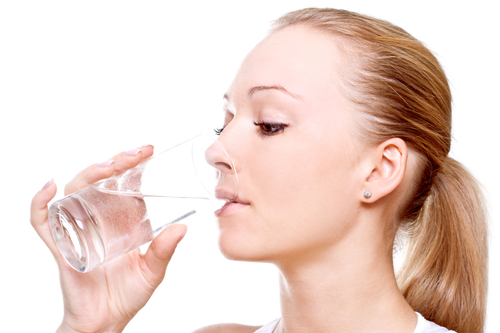

Polydipsia is best described as experiencing excessive thirst. Imagine how thirsty you feel on a really hot day or after a strenuous workout—there doesn’t seem to be enough fluid to satisfy the intense thirst you are experiencing. Now take that feeling and imagine it all the time, every day, with no relief from the water you have taken in.
People with polydipsia have an excessive thirst and drink more water than is considered normal. Polydipsia is not a disease, but rather it’s a symptom of another condition, and is often, but not always, the first indication of diabetes.
Link Between Polydipsia and Diabetes
People with diabetes often have an increase in thirst and drink more water than the average person, which is a good indication that blood glucose levels are higher than normal. How does that work? Sugar pulls water into the blood and the kidneys attempt to remove the additional sugar by making more urine.
Cells then become dehydrated, which is what causes excessive thirst. Someone with diabetes will drink even more water in the hopes of satisfying this thirst, but that water gets removed as urine, and the cycle repeats itself because the cells are still lacking the right amount of water. So no matter how much water is consumed, the diabetic will continue feeling thirsty.
Causes of Polydipsia
Excessive thirst can be attributed to a number of things other than diabetes. Other polydipsia causes can include something as simple as eating a salty or spicy meal; you know you will likely be drinking a lot of water for the next few hours after.
Losing a lot of blood because of an accident and taking certain medications can also cause it. As well, severe infections, vigorous physical activity, diarrhea, vomiting, and a mental disorder called psychogenic polydipsia can all cause it. Having severe burns is another cause of excessive thirst because it can lead to a loss of fluid in the body. Pregnancy can cause extreme thirst too.
Symptoms of Polydipsia
Polydipsia can be detected by two main symptoms:
- The first is excessive thirst that can’t be satisfied regardless of how much water is consumed. This means you would have to drink at least 100 mL of water for every kilogram of body weight, every day.
- The second symptom is a natural result of the first—urinating a lot, also known as polyuria. There is an exact measurement to help you determine what might be considered excessive: passing more than five liters of fluid in 24 hours. This is considered too much and should be noted so that if you decide to see a doctor, you will have the necessary information to help determine a cause.
- Other symptoms include urinating at night, whether you’re getting up to use the washroom or wetting yourself while you sleep.
Diagnosis for Polydipsia
Polydipsia is not a disease in itself but is typically a symptom of an underlying medical condition. Having a doctor investigate for diabetes mellitus or diabetes insipidus can be helpful in determining a diagnosis for polydipsia because these are the most common causes. There are a number of tests your doctor can do to determine the reason for your polydipsia, whether it is related to diabetes or not:
- Testing your renal function and glucose levels will likely be what your doctor tests for first so as to rule out kidney issues and diabetes, respectively.
- A urine test and water deprivation test are also typical initial tests to help diagnose polydipsia.
Treatment for Polydipsia
Polydipsia treatment depends on the specific cause, which will be determined by your doctor. Thankfully, there are a number of treatments for polydipsia:
- Desmopressin: This is the preferred medication on the market right now. The drug helps control polydipsia by reducing how much urine the body produces, which in turn limits how much a polydipsia patient will feel the need to drink excessive amounts of water.
- Behavioral treatment: One way to manage and treat polydipsia without the use of drugs is through behavioral treatment, including intervention and modification. A doctor will help determine which course of treatment is best, based on test results and other factors uncovered in the diagnosis stage.
Early diagnosis and treatment of polydipsia is important, to avoid complications and irreversible damage.
When to See the Doctor to Treat Polydipsia
Deciding when to see your doctor to determine the reason for your excessive thirst is an important first step in getting the help you might need. The first consideration is if you already have diabetes and are experiencing an increase in your thirst and water consumption for a number of days.
Don’t worry if it’s only for a day—you might just be dehydrated or perhaps you ate a salty meal a few hours before. If diabetes isn’t a concern for you, then see a doctor if the abnormal thirst and intake of water goes on for days and can’t be explained by things like sweating, salty food, medication, physical exertion, or extreme heat.
Sources for Today’s Article:
“Thirst – excessive,” U.S. National Library of Medicine web site, last updated February 2, 2016; https://www.nlm.nih.gov/medlineplus/ency/article/003085.htm, last accessed February 7, 2016.
“Polydipsia,” Diabetes.co.uk; http://www.diabetes.co.uk/symptoms/polydipsia.html, last accessed February 7, 2016.
“Polydipsia – Psychogenic, Causes, Diagnosis, Treatment,” MDDK web site; http://mddk.com/polydipsia.html, last accessed February 7, 2016.